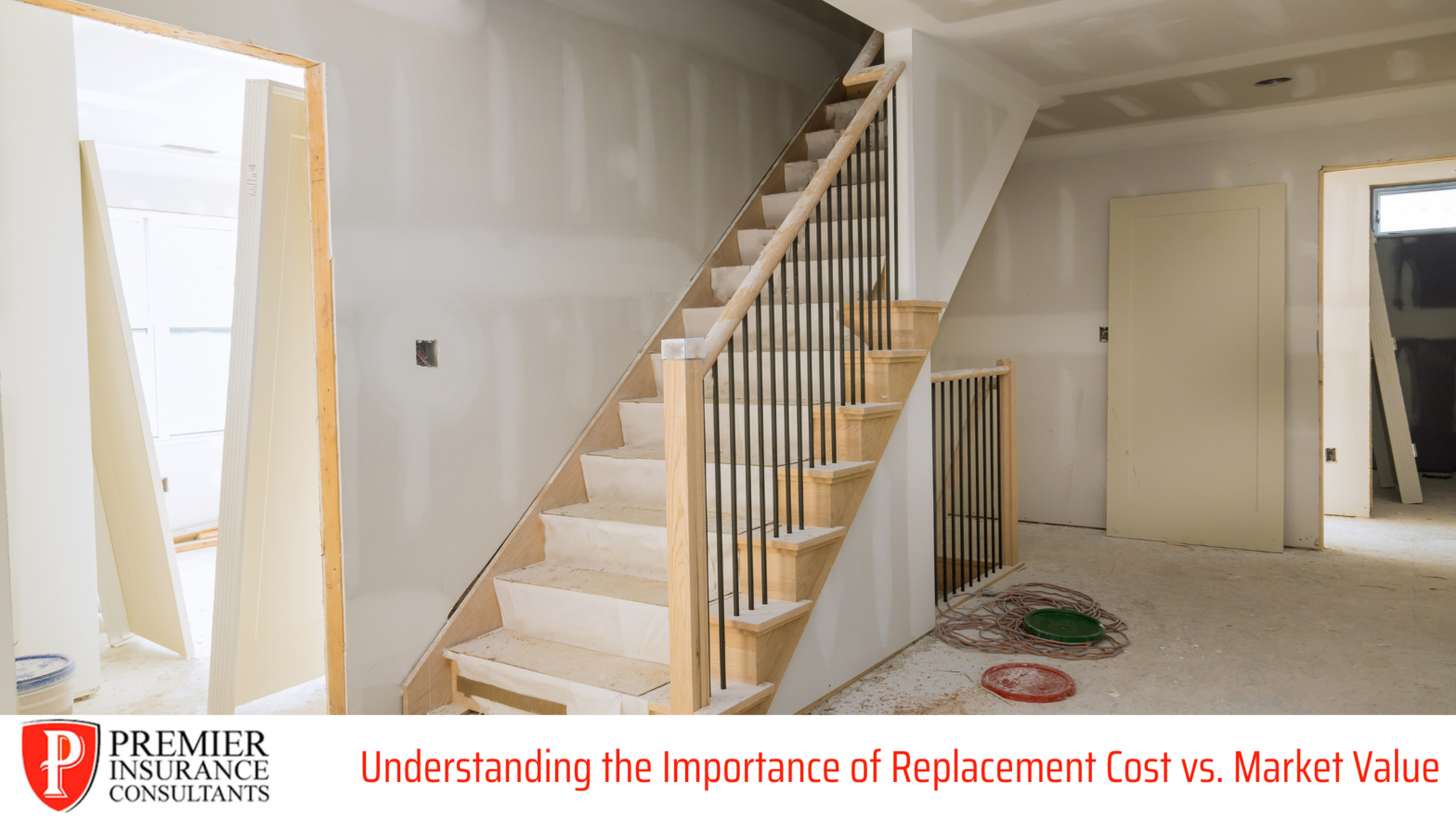When purchasing or updating your homeowners insurance policy, you’ve likely come across terms like “replacement cost” and “market value.” While these concepts are critical in determining the right insurance coverage, many homeowners struggle to understand their differences and significance. This blog post aims to clarify these terms, explain their importance, and guide you through how to accurately determine them. Let’s ensure your home is adequately protected and valued.
Understanding the Difference
First things first—what exactly do “replacement cost” and “market value” mean?
Replacement Cost refers to the amount it would take to replace or rebuild your home from scratch, using similar materials and craftsmanship, without accounting for the land. This cost covers everything from construction materials to labor.
Market Value, on the other hand, is the price your home could sell for in the current real estate market. This value is influenced by factors such as location, market demand, and the overall condition of your property.
The Significance of Accurately Determining Replacement Cost and Market Value
Understanding and accurately determining these values is crucial for several reasons:
- Insurance Coverage: Ensuring your home is insured at its replacement cost ensures you can rebuild it to its original state if disaster strikes.
- Financial Planning: Knowing your home’s market value helps in financial planning, including selling your home or using it as collateral for a loan.
Influencing Factors
Replacement Cost Factors
- Materials and Labor: The cost of building materials and labor rates play a significant role.
- Home Features: Unique features or custom designs will increase the replacement cost.
- Local Building Codes: Compliance with current local building codes can impact the overall cost.
Market Value Factors
- Location: Homes in more desirable neighborhoods tend to have higher market values.
- Condition: The overall condition and age of your home affect its market value.
- Market Trends: The current real estate market can significantly influence your home’s selling price.
How to Calculate the Replacement Cost of Your Home
Calculating the replacement cost of your home can be done through several methods:
- Professional Appraisal: Hiring a professional appraiser to assess your home’s replacement cost.
- Insurance Company Assessment: Many insurance companies offer tools and services to help you determine this cost.
- Online Calculators: There are various online tools available that can give you an estimate based on your home’s specifications.
The Importance of Insurance Coverage
Having insurance coverage at or above your home’s replacement cost is essential. Here’s why:
- Full Rebuild: Ensures you can fully rebuild your home to its prior state without financial hardship.
- Avoid Underinsurance: Protects you from being underinsured, which could result in out-of-pocket expenses if the coverage falls short.
Tips for Increasing Your Home’s Market Value
While the focus is often on the replacement cost, increasing your home’s market value can also be beneficial:
- Regular Maintenance: Keep your home well-maintained to preserve its value.
- Upgrades and Renovations: Invest in upgrades, especially in key areas like kitchens and bathrooms.
- Curb Appeal: Enhance your home’s exterior to make it more attractive to potential buyers.
Understanding the dynamics of replacement cost and market value is essential for every homeowner. These values not only affect your insurance coverage but also play a crucial role in financial planning and asset management. Stay informed and ensure your home is both adequately insured and properly valued.
Contact your local Greenville insurance agent, Premier Insurance Consultants of Greenville to learn more or to ask any other questions related to your homeowners insurance policy.
Disclaimer: This article is not expert advice. Limitations and conditions may apply. Please check with your local Independent Insurance Agent for details.




